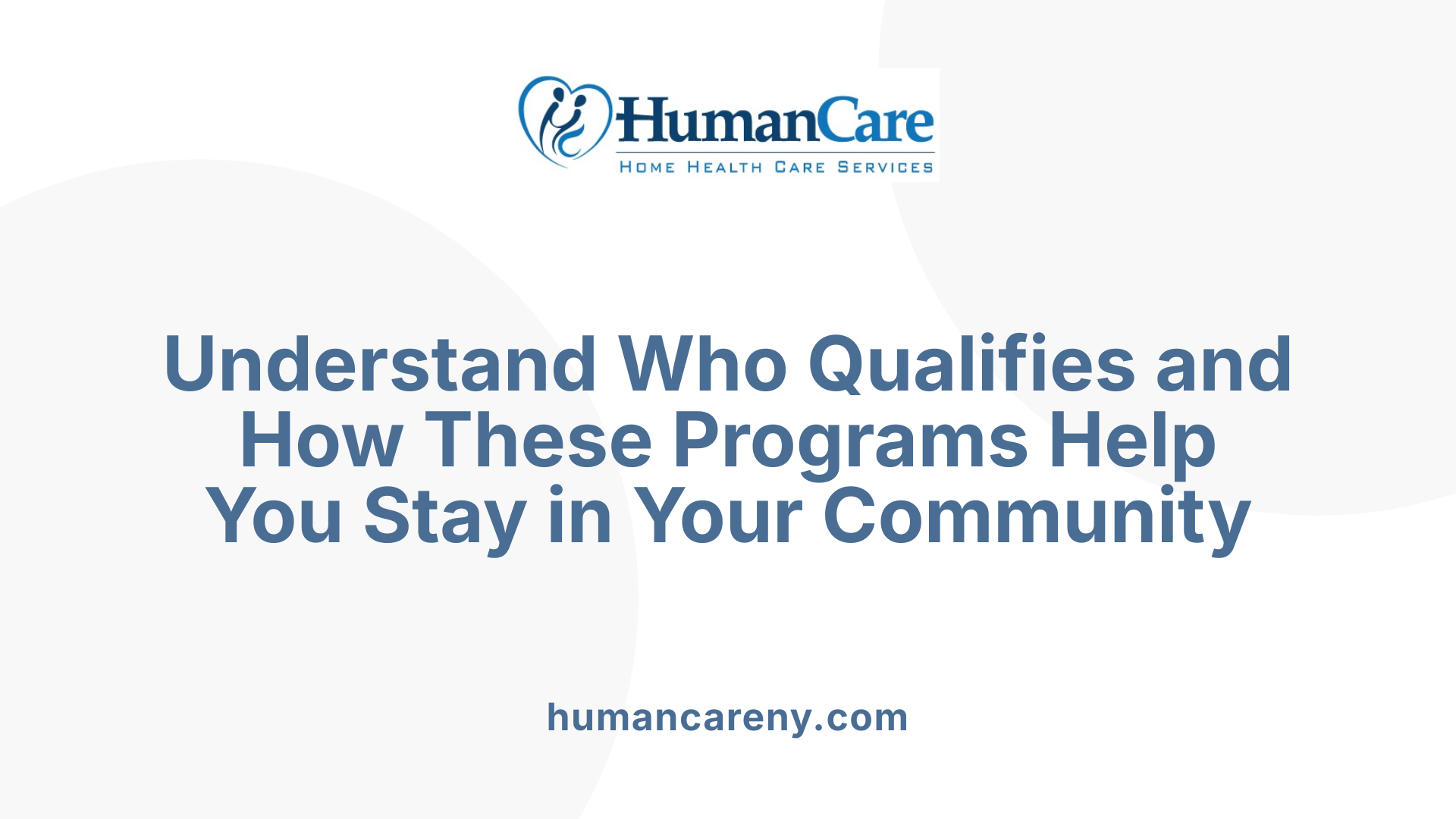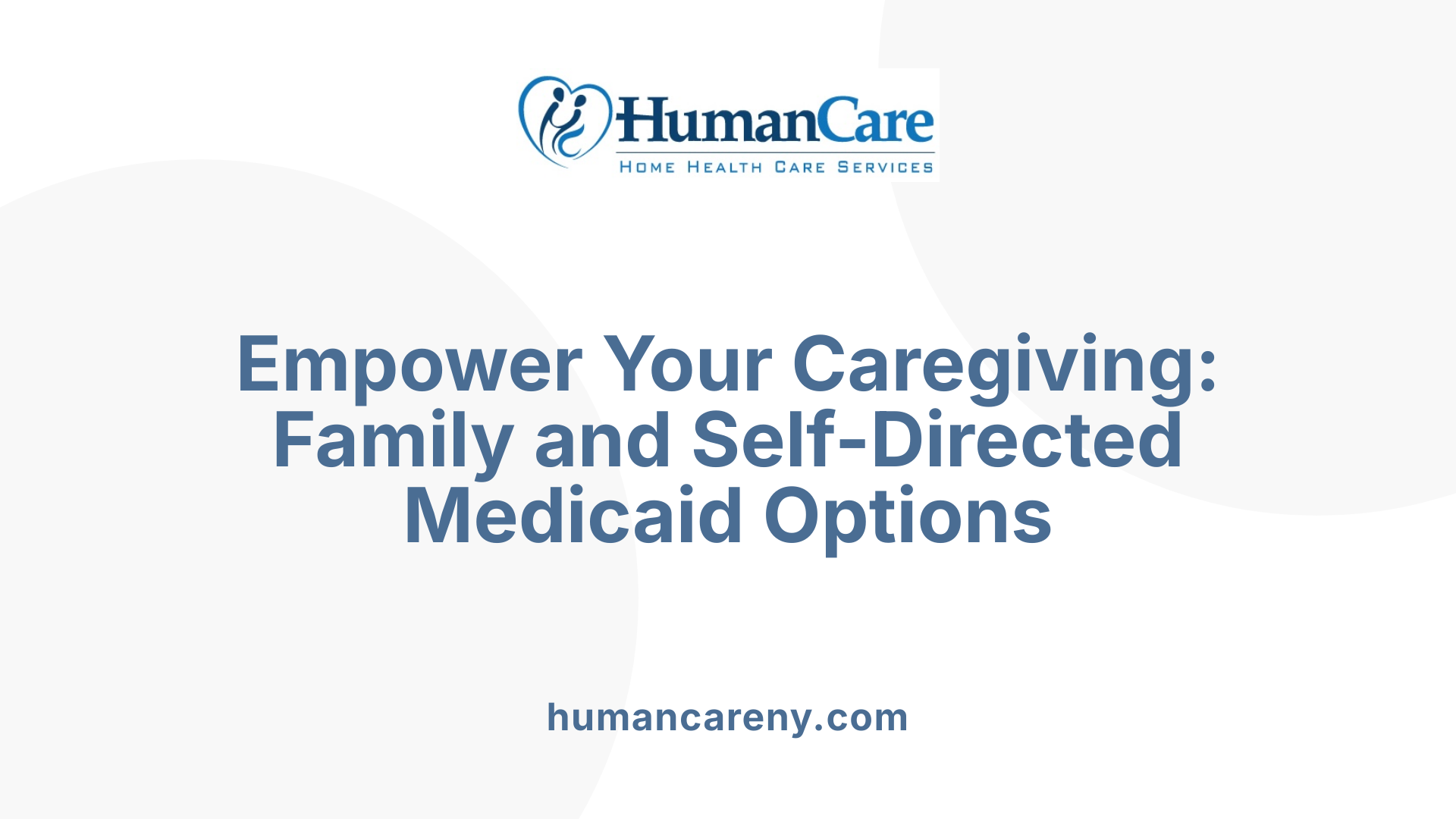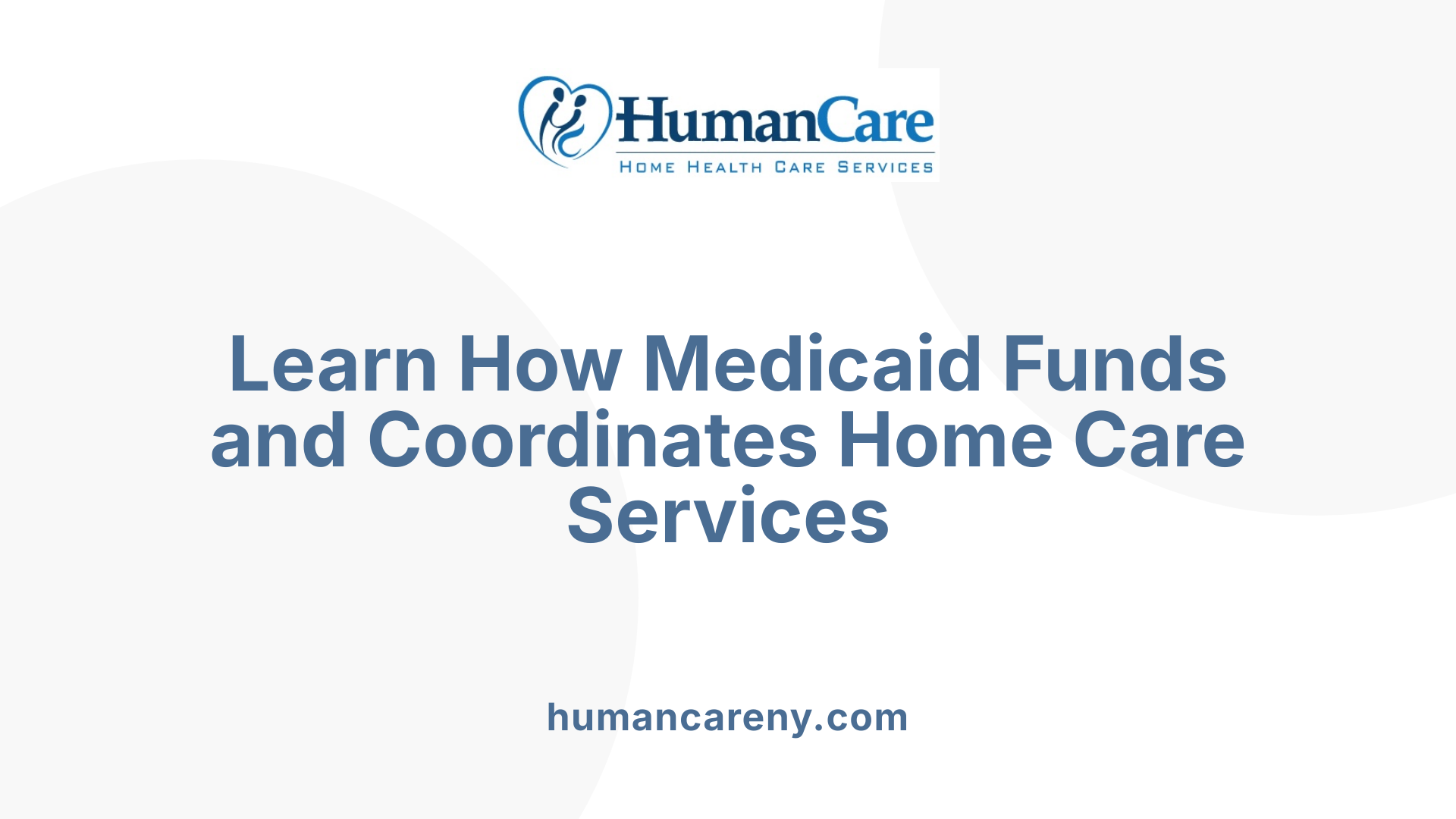Understanding Medicaid Waivers for Home Care
Medicaid-approved waiver programs provide vital support for home and community-based care, allowing eligible individuals to receive medical and supportive services outside institutional settings. These waivers help maintain health stability and independence, often enabling care from family members or trusted aides. This article explores what participants can expect from these programs, highlighting eligibility, service options, and care management in Florida's Medicaid system.
Eligibility and Purpose of Medicaid Waiver Home Care Programs

Who qualifies for Medicaid-approved waiver home care programs?
Medicaid waiver home care programs in Florida primarily serve individuals who require nursing facility level of care but prefer to receive care at home or within their community. Eligible individuals include those aged 65 or older needing such care, as well as people aged 18 or above with disabilities that similarly require nursing facility care. Specific groups covered include individuals with cystic fibrosis, AIDS, traumatic brain injury, or spinal cord injury.
To qualify, recipients must be under the care of a physician who issues a formal order for home care services. They also must have a medical condition or disability that limits their activities of daily living (ADLs) or instrumental activities of daily living (IADLs). Crucially, their care needs must be safely managed at home rather than in an institutional setting.
Purpose of waivers in delaying or preventing institutionalization
The purpose of these waivers is to delay or prevent institutionalization by offering comprehensive home and community-based services. Through Medicaid’s Long-term Care Waiver, recipients receive access to over two dozen reimbursable services, including skilled nursing visits and personal care assistance at home. This approach supports health stability, promotes comfort and independence, and enables individuals to remain integrated within their communities.
Furthermore, these waivers are managed as capitated, managed care programs through Statewide Medicaid Managed Care Long-term Care plans and Managed Medical Assistance Comprehensive plans. Such structuring optimizes care coordination and resource use to benefit recipients.
Population groups served including elderly, disabled, and those with specific conditions
Florida Medicaid’s waiver programs are tailored to meet the needs of multiple population groups. These include elderly adults aged 65 and older, younger adults with disabilities, and individuals with specific medical conditions such as cystic fibrosis or brain and spinal cord injuries. By covering medically necessary skilled nursing and home health aide services, these programs ensure that recipients receive personalized, appropriate care without institutionalization.
Scope of Services Covered Under Medicaid Waivers

What types of services are covered under Medicaid waiver home care programs?
Florida Medicaid waivers offer a comprehensive array of home and community-based services designed to support individuals in their homes and communities, helping to delay or avoid institutional care. More than two dozen types of services are reimbursed under these waivers, ensuring recipients receive personalized care tailored to their needs.
Types of home and community-based services reimbursed
These services include visits by registered nurses (RNs), licensed practical nurses (LPNs), and qualified home health aides who assist recipients with daily activities and skilled care needs. The program supports medically necessary skilled nursing and home health aide services, helping individuals maintain their health stability.
Medically necessary skilled nursing and aide services
Skilled nursing services are provided in the recipient’s home or community setting based on a physician's order. Care includes medical monitoring and interventions that require professional expertise. Home health aides assist with activities of daily living and personal care under nursing supervision, all designed to ensure safe and effective care outside institutional settings.
Respite services under waiver programs
Respite care is another critical service covered under these Medicaid waivers, especially under the long-term care waiver programs. It offers temporary relief to family caregivers by providing short-term, substitute caregiving. This support helps reduce caregiver stress and improves overall care sustainability.
Together, these services form a coordinated support system that enables individuals with disabilities, chronic illnesses, or age-related conditions to live safely and comfortably outside of nursing homes or hospitals.
Self-Direction and Family Caregiving Options in Medicaid Waivers

Participant Directed Option (PDO) and Consumer Directed Personal Assistance Program (CDPAP)
Florida Medicaid enables recipients to self-direct their care through programs like the Participant Directed Option (PDO) and the Consumer Directed Personal Assistance Program (CDPAP), known locally as CDC+. These programs give individuals control to choose trusted caregivers, including family members or friends, allowing for personalized in-home support.
Roles of Family Members as Paid Caregivers
Family members can be hired as paid caregivers under these Medicaid waiver programs. Although all caregivers must pass a background screening, they do not need formal certifications or licenses. This flexibility helps families provide familiar, comfortable care while receiving compensation. Typical earnings range from $10 to $15 per hour, depending on care needs.
Requirements and Supports for Family Caregivers
To qualify, recipients must require nursing facility level care and have a physician's order confirming medical necessity. Care provided at home must be safe and medically appropriate. Payments to family caregivers are managed through fiscal intermediaries who handle payroll, taxes, and regulatory compliance, easing administrative burdens. Caregivers can also receive training tailored to the recipient’s needs.
Can family members be paid caregivers through Medicaid waiver programs?
Yes, family members can serve as paid caregivers in Medicaid waiver programs such as PDO and CDPAP. These programs support home-based care options that delay institutionalization and empower families, while ensuring quality care and proper oversight.
| Program Name | Allows Family Caregivers | Certification Required | Payment Management | Typical Caregiver Pay Rate |
|---|---|---|---|---|
| Participant Directed Option (PDO) | Yes | No | Fiscal management service | $10 to $15 per hour |
| Consumer Directed Personal Assistance Program (CDPAP)/CDC+ | Yes | No | Financial intermediary handling payroll and taxes | $10 to $15 per hour |
How Medicaid Waivers Manage and Fund Caregiving Services

How are Medicaid waiver home care services funded and managed?
Medicaid waivers in Florida, such as the Long-Term Care Waiver, operate under a capitated managed care model. These waivers are offered through Statewide Medicaid Managed Care Long-Term Care plans and Managed Medical Assistance Comprehensive plans. This approach facilitates efficient management of funds and services covering home and community-based care as well as nursing facility services.
Payments to caregivers, including family members hired through options like the Participant Directed Option (PDO), are processed through fiscal management service agencies. These agencies oversee payroll, tax filing, and regulatory compliance, ensuring smooth administration of funds and remuneration.
Compensation rates for caregivers vary based on the type and amount of care provided, typically ranging from $10 to $15 per hour in programs like the Consumer Directed Care Plus (CDC+) program. While formal certification is not required for family caregivers, a background screening is mandatory to qualify for payment.
How do Medicaid waivers integrate with other caregiving programs?
In addition to Medicaid waivers, long-term care insurance policies may offer benefits for in-home care by family members, providing an alternative or supplement to Medicaid funding.
Furthermore, veteran programs like the Department of Veterans Affairs’ Program of Comprehensive Assistance for Family Caregivers provide stipends, training, and support to eligible caregivers of veterans, enhancing the resources available beyond Medicaid.
This combination of managed care Medicaid waivers, insurance options, and veteran benefits creates a comprehensive support network facilitating home-based caregiving services for eligible Floridians.
Key Benefits and Considerations of Medicaid Home Care Waiver Programs

What are the main benefits of Medicaid waiver home care programs?
Medicaid waiver home care programs in Florida provide vital benefits that help individuals maintain independence and live within their communities rather than entering institutional care. These programs are designed to delay or prevent nursing home placement by offering comprehensive home and community-based services.
One of the significant advantages is the flexibility in choosing caregivers. Recipients or their representatives can utilize the Participant Directed Option (PDO) or programs like CDC+ (Consumer Directed Care Plus) to select family members or friends as paid caregivers. This promotes personalized care from trusted individuals, enhancing comfort and satisfaction.
Regarding caregiver preparation, Medicaid does not require formal certifications or licenses for family caregivers hired through these programs. However, caregivers must pass a background screening and can receive training provided by the care recipient or their representative to ensure quality and safety.
Overall, these waiver programs offer tailored, community-oriented care that prioritizes the recipient’s preferences and supports caregivers, helping maintain health stability and improve quality of life.
Embracing Medicaid Waivers for Personalized Home Care
Medicaid-approved waiver programs serve as a crucial lifeline for eligible individuals desiring to remain in their homes while receiving skilled care. By offering extensive service options, opportunities for family caregiving compensation, and supportive self-direction models, these waivers empower recipients and their families. Understanding eligibility, program structure, and the flexibility available can guide families towards informed choices for long-term care solutions that promote dignity, independence, and quality of life.



